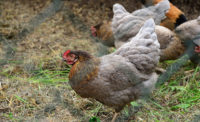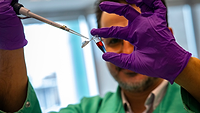Scientists Find Various Impacts of Related Salmonella Variants

Researchers in the UK have discovered that Salmonella variants can have different effects on the heath of pigs and the risks they pose to food safety. Professor Rob Kingsley from the Quadram Institute and Professor Mark Stevens from the Roslin Institute collaborated with researchers at the Earlham Institute to look at frequent variants of Salmonella in UK pigs.
In the pork industry, Salmonella Typhimurium can impact the health and welfare of pigs and have potential effects on productivity.
Two types of S. Typhimurium, U288 and sequence type (ST) 34, are prevalent in pigs and differ in how each colonizes the intestine and surrounding tissues and the severity of disease each produces. The ST34 variant is responsible for more than half of all UK human S. Typhimurium infections, while U288 is rarely associated with human infection.
The research team used whole-genome sequencing and found that the two types of S. Typhimurium have been circulating in UK pigs since 2003. By analyzing the genetic makeup of Salmonella strains isolated from pigs and people, researchers identified variants and could study how they evolve and behave. Samples were taken from human clinical infections during routine diagnosis and from animals during routine surveillance.
The study was published in the journal Communications Biology and it could help predict the risk of Salmonella variants to animals and people, as well as help strategies to prevent or control Salmonella infections.
Looking for a reprint of this article?
From high-res PDFs to custom plaques, order your copy today!





